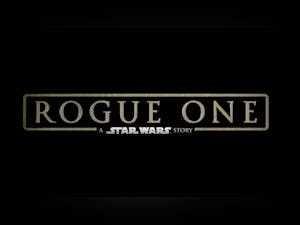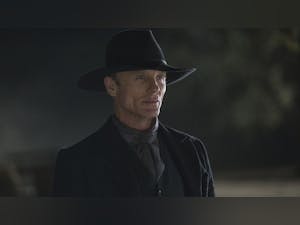From: The Scene Blog
Recap: NPR’s Maureen Corrigan takes Politics & Prose on a voyage into "Gatsby"
SYDNEY GORE/THE EAGLE
Maureen Corrigan is no stranger to the legendary tale of Jay Gatsby.
As a book critic for NPR’s “Fresh Air” and the voice of The Washington Post’s “Book World” section, she has re-read “The Great Gatsby” more than 50 times.
However, Corrigan isn’t the first— and she certainly won’t be the last— person to admit that when she read the novel for the first time as a high school student, she absolutely hated it.
Upon the release of her forthcoming book “So We Read On: How The Great Gatsby Came To Be And Why It Endures,” Corrigan appeared at Politics & Prose on Sept. 9 to share the journey of her latest literary pursuit, dive into her deep admiration for F. Scott Fitzgerald, and defend her change of heart.
“Gatsby is the novel that unites us as Americans,” said Corrigan. “It’s the one thing that we have in common.”
“So We Read On” captures the essence of why Corrigan believes that “The Great Gatsby” is one of the greatest American novels in history. In her book, Corrigan investigates what made Fitzgerald’s most infamous story so influential over time and explains how all the elements fell into place.
“I wanted to find out how that happened. How do books come back and become a central part of America?” she said. “How does [Fitzgerald] say something so big about America in a short story?”
Corrigan took her silently captivated audience of family, friends, colleagues and students through the four-year research process in a matter of minutes, transporting the crowd to what felt like one of her seminars at Georgetown University. For about an hour, she divulged the origins of “Gatsby” as well as the chronological history of what happened before, during and after the novel was published. Corrigan admitted that her husband was the person who encouraged her to write it, recalling his exact words as, “You love Gatsby, this is the book you should write.”
Corrigan visited all of the Fitzgerald archives in the U.S. and gathered research overseas when she toured on Big Read. She has watched every film adaptation of “Gatsby,” attended “Gatz” on Broadway and even embarked on a “Gatsby” boat tour. A handful of her most rewarding moments were when she had the pleasure of meeting one of Fitzgerald’s granddaughters, Eleanor Lanahan; reading the original “Gatsby” manuscript; and seeing the original painting of the iconic book cover artwork at Princeton University.
Though she initially dreaded the idea, Corrigan thought that re-visiting her old high school in Queens, New York was crucial to telling this story because it was “the landscape of the novel.” For her and many others, this is where the introduction to Fitzgerald begins.
It was at this moment that her eyes glimmered as she passionately spoke about the triumphs of obsessive love and the beauty of a desire that never fades for the one that got away, like Daisy Buchanan.
“‘Gatsby’ is a retrospective novel…and that means nothing can be changed,” Corrigan concluded.
“So We Read On” is available for purchase in bookstores now.





